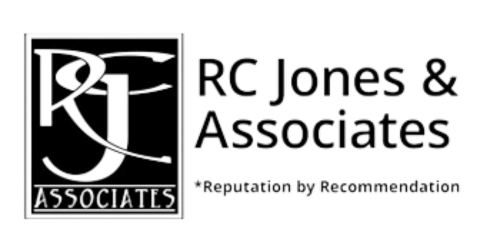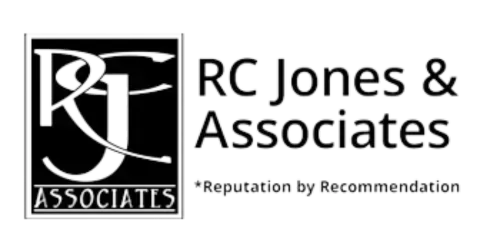One Big Beautiful Bill (OBBBA/OB3): What Every Business Owner Needs to Know
Robert Jones • October 27, 2025
Signed into law in 2025, the One Big Beautiful Bill (OBBBA or OB3) brings meaningful changes to how small and mid-sized businesses approach tax planning. From enhanced deductions to newly expanded credits—and even the phasing out of long-standing incentives—this legislation reshapes the landscape for business owners who want to plan smarter and grow strategically.
At RC Jones & Associates, we go beyond surface-level compliance. We help business owners translate complex tax laws into actionable strategies. With the right guidance, OB3 can become a powerful tool to reduce your tax liability, reinvest in growth, and secure your long-term success.
Overview
The One Big Beautiful Bill is a sweeping reform package that permanently extends and modifies several key tax provisions while sunsetting others. At its core, OB3 rewards forward-thinking business owners who take the time to align their tax strategies with their operational goals.
Key Provisions to Watch:
- Expanded Qualified Business Income (QBI) deduction for pass-through entities
- Restored 100% bonus depreciation for eligible capital investments
- Changes to SALT deduction limits and pass-through entity tax (PTET) rules
- Enhanced employer tax credits for offering on-site or partnered child care
- Increased estate tax exemption for succession and legacy planning
- Phase-out of energy-related tax incentives
Tax Strategies to Maximize Under OB3
1. Boost QBI Deductions
The QBI deduction—now permanent and expanded—offers significant tax savings for qualifying pass-through entities. Structuring your compensation, property ownership, and payroll mix correctly can ensure you meet the annual thresholds.
Example: A consulting firm restructures its ownership distribution and wages to fully utilize the enhanced QBI deduction, creating meaningful annual savings for the owners.
2. Use 100% Bonus Depreciation to Accelerate Write-Offs
Under OB3, eligible equipment and property can once again be fully deducted in the year of purchase. This is a powerful tool for improving cash flow, especially during growth periods.
Example: A construction company invests in new equipment and vehicles. Rather than depreciating them over time, they claim the full deduction immediately—freeing up cash to fund their next big project.
3. Revisit SALT and PTET Planning
OB3 modifies the cap on state and local tax (SALT) deductions and narrows PTET workarounds. Strategic modeling is essential to avoid surprises.
Example: A multi-state professional services firm assesses its eligibility under the new PTET guidance and adjusts how it reports income at the entity level to reduce partners’ overall tax burden.
4. Tap into Employer Child Care Credits
The law increases available credits for businesses that provide on-site or contracted child care for employees. This is a win-win for retention and tax savings.
Example: A growing hospitality group partners with a local daycare to offer discounted care to employees—unlocking a larger federal credit while boosting morale and retention.
5. Prepare for Temporary Payroll Deductions
While some OB3 deductions related to payroll may be temporary, they can still offer short-term planning wins when implemented correctly.
What’s Changing —and What’s Going Away
Act Now or Miss Out:
Some credits and deductions under OB3 are enhanced, while others are being phased out or repealed entirely. Knowing which is which is critical for your planning.
Sunsetting Energy Incentives:
Businesses relying on renewable energy credits should revisit timelines—many popular energy-related credits are being scaled back or repealed.
Opportunity in Estate Planning:
OB3 increases the estate tax exemption threshold, creating a limited-time window for family-owned businesses to transfer assets with lower tax exposure.
Example: A family business revises its succession plan to transfer equity to the next generation under the higher exemption limit—avoiding future tax costs and preserving legacy
Why Tax Planning Matters Now More Than Ever
The Bottom Line:
Thoughtful tax planning under OB3 isn’t just a compliance issue—it’s a business advantage.
Benefits Include:
- Reduced federal and state tax liability
- Improved after-tax cash flow
- Stronger employee benefit offerings
- Strategic transition planning for long-term goals
How RC Jones & Associates Helps:
- Proactive modeling tailored to your entity structure and industry
- Year-round guidance on compliance and tax optimization
- Partnership-level insight to align your business decisions with your tax plan
Take Action —Put OB3 to Work
Don't Let Complexity Cost You Money
This legislation is full of opportunity—but only for those who act with clarity and intention. Cookie-cutter advice won’t cut it.
Partner with RC Jones & Associates to:
- Maximize tax-saving opportunities under OB3
- Stay compliant with evolving federal and state rules
- Align financial strategy with your business goals
Take Action —Put OB3 to Work
1. What is the One Big Beautiful Bill Act (OBBBA or OB3)?
OB3 is a comprehensive tax reform law enacted in 2025. It makes several business-related tax provisions permanent, modifies others, and introduces planning opportunities for small and mid-sized business owners. It’s especially relevant if you report income on Schedule C, E, or F.
2. Who should care about OB3?
If you're a sole proprietor, landlord, S-corp shareholder, partner, royalty recipient, or farmer—and you file Schedule C, E, or F on your personal tax return—OB3 likely affects you. Whether you run a consulting firm, manage rental properties, or operate a family farm, OB3 could unlock new tax savings if properly planned for.
3. What is the Qualified Business Income (QBI) deduction, and how did OB3 change it?
OB3 makes the QBI deduction permanent. This allows many business owners to deduct up to 20% of their qualified business income, subject to certain limits based on wages paid, capital investment, and income level. Planning around these factors can help you get the full benefit.
4. How does OB3 impact depreciation and asset purchases?
The Act restores 100% bonus depreciation for qualified business property. That means you can fully deduct the cost of eligible equipment, vehicles, or other assets in the year they’re placed in service—great for managing cash flow and reducing taxable income.
5. Are there changes to the SALT deduction or PTET elections?
Yes. OB3 increases the SALT deduction cap for some taxpayers and tightens the rules on pass-through entity tax (PTET) elections. The rules vary by state and income level, so customized planning is essential.
6. Does OB3 offer any benefits for families or employees?
Yes. If you offer or expand employer-provided child care, OB3 increases available tax credits. This can be a smart way to support your team while lowering your tax bill.
7. Are the changes under OB3 automatic, or do I need to take action?
Most benefits require proactive steps—like choosing the right entity type, timing asset purchases, or re-evaluating compensation strategies. Without a plan, you may miss out on key deductions or credits.
8. How often do I need to update my strategy under OB3?
While many OB3 provisions are permanent, income levels, phaseouts, and deduction limits adjust annually. A yearly review with your tax advisor is essential to stay ahead and adapt your plan accordingly.
9. Is OB3 just about taxes—or does it affect other areas of my business?
OB3 directly impacts tax planning, but its effects ripple into areas like payroll, retirement planning, estate and succession planning, and capital investment decisions. It’s a valuable lens for strategic decision-making.
10. Why should I work with RC Jones & Associates instead of just relying on my tax software or payroll provider?
OB3 requires strategy, not just software. Most systems are designed for compliance—not optimization. At RC Jones & Associates, we interpret the rules and build a tax plan tailored to your business, your goals, and your future.





